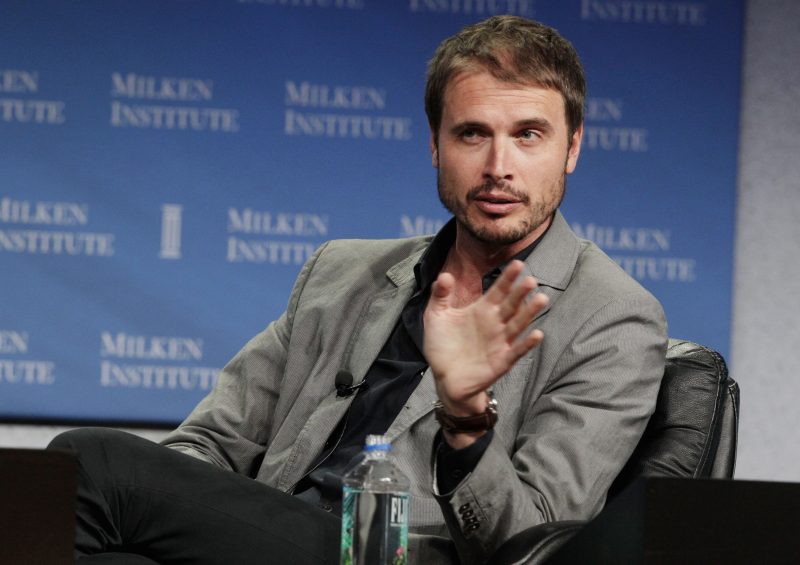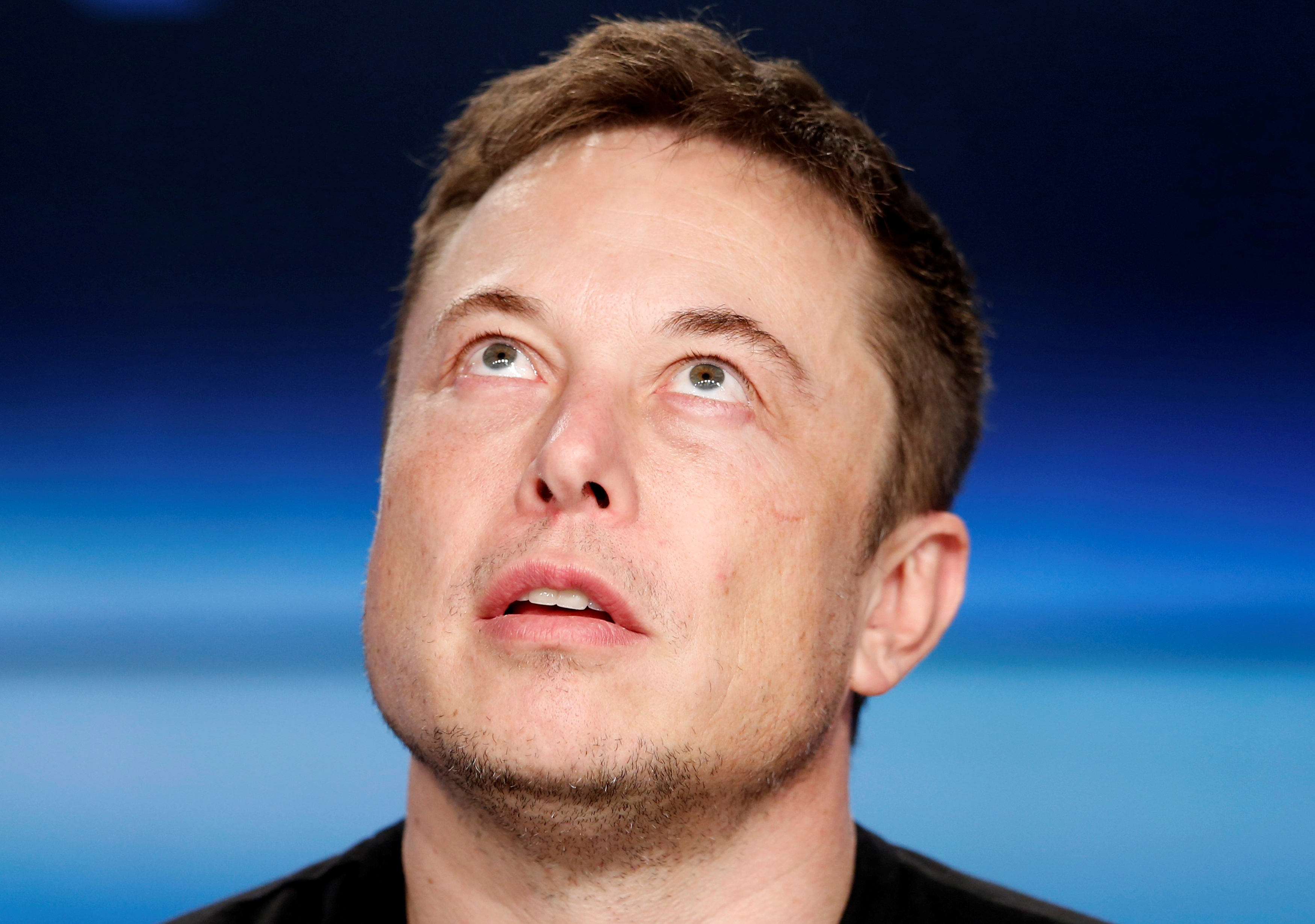- Corporate boards are supposed to oversee CEOs and top managers.
- Tesla’s board has repeatedly made clear that its priority, instead, is ensuring that Elon Musk remains the company’s unquestioned head as its CEO and chairman.
- Even by that definition, directors failed at their job; as part of a settlement with the Securities and Exchange Commission over the weekend, Musk is stepping down from his chairman role.
- Because Tesla’s board is so incompetent, there was an acute danger late last week that Musk would be forced out of the company’s leadership entirely.
- The reason the SEC brought charges against Tesla is because directors failed at their real job – keeping a watch on Musk and the executive team.
- The SEC complaints against Musk and his company gave yet another indication of the awfulness of Tesla’s board.
Tesla’s board is spectacularly bad at its job – even measured by its own very low bar.
As the charges of securities-law violations filed last week against the electric-car company and CEO Elon Musk indicate, Tesla’s directors failed at the job that’s supposed to be the top priority of any board: overseeing top executives. But they also failed at doing what they’ve defined as their highest duty – ensuring that Musk remains the unquestioned leader at Tesla as its CEO and chairman. As part of the settlement the company and Musk agreed to with the SEC, Musk will step down as chairman of the board.
In fact, Tesla’s board is so horrible at its job that the SEC effectively ordered it to undergo a shakeup as part of the settlements. Not only does the company need to replace Musk as chairman, but it also needs to add two new independent directors to the board. What’s more, the SEC found it necessary in its settlement with the company to order directors to do what they should have been doing all along: keeping a close watch over Tesla’s CEO.
SEC: Tesla had no Twitter policy for Musk
The SEC complaints were related to Musk’s infamous “funding secured” tweets from last month. The agency charged that Musk knew – or had reason to know – that the statements he posted on Twitter about potentially taking the company private were false and misleading.
But in the complaint it filed against Tesla itself, the SEC made clear that the board itself was also at fault. In a public regulatory filing in 2013, the company alerted the agency and investors that it planned to use Musk's Twitter account to communicate with investors. That meant that anything that Musk or the company posted on that account pertaining to information about the company - and there was a lot of it - would have to meet the same disclosure requirements as official company statements such as press releases or documents filed with the SEC.
Despite that, no one on the board or at the company reviewed Musk's tweets before he posted them, according to the SEC's complaint. Worse, the company had no procedures or rules in place to ensure that Musk's Twitter statements met SEC disclosure requirements.
"Until after the August 7, 2018 tweets, Tesla had no corporate policies that specifically addressed Musk's use of Twitter," the SEC charged.
As part of the settlements, Tesla and Musk declined to admit to or deny the agency's allegations. That's par for the course; when the SEC settles charges with defendants, the latter rarely acknowledge guilt. But you can take the company agreement as part of the settlement to pay a $20 million fee and to shake up its board as a tacit admission that the board wasn't doing its job.
Tesla's board was doing its best impression of Nero
It's been clear for a long time now that instead of overseeing Musk, Tesla's directors saw it as their job todefer="defer"to and empower him. But the SEC complaint against Musk added additional details about the board's negligence in the form of the detailed timeline of the events leading up to and following his statements that a move to take the electric-car company private was all but a done deal.
The actors that are conspicuously absent from much of that sequence of events: Tesla's directors. They're also notably absent in CNBC's story about the events immediately leading up to the SEC's decision to file charges, during which time Musk reportedly rejected the agency's initial settlement offer - a move that for a short time put in doubt whether he'd be able to remain at the company at all.
After Musk rejected that offer, the agency filed suit against him and sought to permanently bar him from serving as an officer or director of any public company. Musk ended up settling with the SEC the next day.
In other words, Tesla was facing what its own directors apparently considered an existential threat - Musk's departure - yet they seemed to do almost nothing to prevent it. Instead, they seemed to be fiddling while Rome was burning.
Neither Tesla nor Musk has commented publicly on the settlements. But in response to the charges that were filed Friday against Musk himself, the board put out a statement that almost read like a non sequitur. It didn't directly address the SEC's complaint or its possible consequences. Instead, it seemed to indicate that the company and it would continue on with business as usual.
"Tesla and the board of directors are fully confident in Elon, his integrity, and his leadership of the company, which has resulted in the most successful US auto company in over a century," the board said. "Our focus remains on the continued ramp of Model 3 production and delivering for our customers, shareholders and employees."
Musk's tweets about Tesla going private got him in trouble
Musk is in trouble for a series of tweets sent August 7 in which he stated that he was considering taking Tesla private at a $420 a share price, that the funding for such a deal was already "secured," that investors were on board, and that the only barrier left to the move was a shareholder vote. He also said that the company was hoping to structure the deal so that all current investors could remain shareholders in the company even after it went private if they so chose.
According to the SEC complaint, Musk had reason to know when he made the statements that pretty much all of them were false or misleading. Although he'd spoken with Saudi Arabia's sovereign wealth fund about a deal to take Tesla private prior to the tweets, they hadn't discussed a price and had no formal, signed agreement in place, according to the SEC. The company hadn't even begun to work through how it might structure the deal so everyday shareholders could remain investors, the SEC said.
By the time of the tweets, the board hadn't even received a formal proposal for such a transaction, much less voted to approve it, according to the complaint. And Musk hadn't spoken to any institutional investors about such a deal, the SEC said.
Tesla's board is largely absent from the SEC's timeline
The SEC's complaints against Musk and Tesla are largely focused on the actions of Musk himself, but they do give some insights into what happened inside the company after his tweets. Some 35 minutes after Musk sent his initial "funding secured," Deepak Ahuja, Tesla's chief financial officer, sent him a text message asking whether Ahuja and other Tesla executives should craft a message for Musk to send to employees and investors that explained the rationale for the move. Musk sent out that email later in the day.

Meanwhile, just minutes after that first tweet, Tesla's head of investor relations sent his own text to Musk asking him to verify the tweet. The IR head, along with Musk's chief of staff and Musk himself, then fielded multiple inquiries from reporters, investors, and analysts asking for clarification about the tweets.
There's no indication from the complaints that Tesla's directors said anything to Musk about them or reacted to them in any particular way.
And that's odd, because if the SEC complaints are correct, they - as much as Musk - had reason to suspect that at least some of the tweets were false. They knew, for example, that more needed to be done to complete a going private transaction than just getting a shareholder vote, according to the SEC. At least one of them, according to the complaint, seemed to know that structuring such a deal so that everyday shareholders could remain investors was dubious - and that the board hadn't even considered a formal proposal for how to do that.
One would also think that the board would have immediately tried to get an explanation from Musk about his tweets, since the idea that a deal was mostly done would have come as news to them, as the complaint makes clear.
Yet despite that, there's no indication in the complaints that the board confronted Musk about the tweets or encouraged him to correct the record in short order. Tesla representatives did not respond to an email seeking information about discussions the board may have had with Musk about his tweets or his negotiations with the SEC.
Regardless, the board certainly didn't clear up Musk's alleged false statements itself. Instead, it allowed those statement to remain in place for nearly a week.
The board had reason to know Musk was in serious trouble
It wasn't until August 13 that Musk himself started walking back his tweets, acknowledging that there was no formal proposal to take the company private and nothing had been presented to the board. On August 24, he publicly abandoned the effort in a blog post, acknowledging for the first time that there were potential obstacles to allowing current shareholders to remain investors after the company went private.
The SEC reportedly opened an investigation into Musk's tweets by the day after he posted them and subpoenaed the company's directors on the matter within weeks. So, directors had every reason to know that Musk and Tesla faced serious legal trouble soon after he made the statements. The SEC complaints can and do lead to the ouster of executives and even to criminal charges by the Department of Justice.
One would expect that Tesla's directors would have been doing everything they could to placate the SEC and to push Musk to settle the case on terms as favorable as he could get, as soon as possible, especially if those terms allowed him to keep his chairman and CEO titles.
That's because directors have made it clear that keeping Musk at the company has been paramount for them. Earlier this year, in explaining why it needed to hand out a stock award to him that could pay him as much as $55.8 billion, directors explained that he was a crucial component to the company.
"The board believes that having the active and engaged services of Mr. Musk is important to the continued growth and long-term interests of Tesla," the directors said. "While the board recognizes that Tesla has many valuable employees who have been a critical part of Tesla's success, the board believes that many of Tesla's past successes were driven significantly by Mr. Musk's leadership."
When Musk rejected the SEC's initial settlement offer, there was a real chance that he would be forced out of any kind of leadership role at the company. Despite that threat, there's no indication in the reports about Musk's negotiations with the SEC that the board played any active role in advising its CEO during that period.
By the board's own terms, the settlement is a big loss for Tesla
Musk ultimately agreed to step down as chairman, pay a $20 million fine, and have his communications with investors overseen by the company. Additionally, Tesla agreed to add the new board members and pay its own $20 million fine.
Although those penalties are somewhat harsher than what the SEC initially offered, they still look a lot like a slap on the wrist compared to what the agency could have gotten if it took the case to trial. After all, Musk remains at the company.
But by the board's own words, his removal as chairman is a significant blow to Tesla. This spring, shareholders proposed that the company bar Musk or anyone else from holding both the CEO and chairman titles. In arguing against the proposal - which investors ended up voting down - Tesla's board emphasized how important it was to the company that Musk retain both roles.
"The board believes that the company's success to date would not have been possible if the board was led by another director lacking Elon Musk's day-to-day exposure to the company's business," it said. The board continued:
"The board believes that it is precisely during times when a company must quickly adapt to constant change and outside pressures that board leadership needs to be lockstep with the company's operations. Our achievements to date notwithstanding, the company is still at a point in its development where we must execute well in order to realize our long-term goals, and separating the roles of chief executive officer and chairman at this time would not serve the best interests of the company or its stockholders."
Now, thanks to the board's lack of oversight of Musk, Tesla will have to face its uncertain future without him holding both roles. In other words, while the company's directors helped fend off an investor proposal to disempower Musk, their ineptitude led to him losing his crucial chairman role anyway.
So, great job, Tesla directors. Not only are you bad at looking out for the interests of shareholders, you're weren't even good at protecting your all-important CEO. And now the company, investors, and Musk have all paid the price - and may have to keep paying it.

